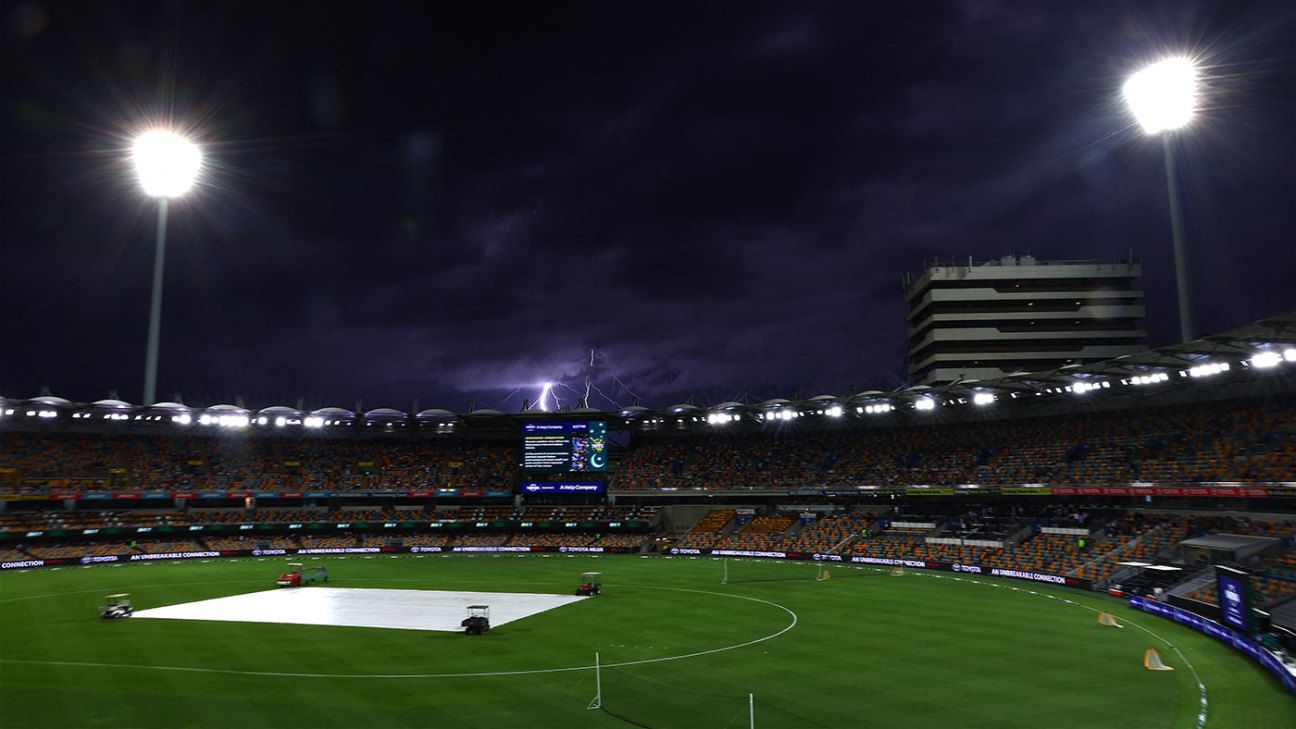 |
|
The first of three T20Is between Australia and Pakistan at the Gabba in Brisbane was reduced to a seven-over contest due to persistent rain and lightning delays. The match, originally scheduled for a full 20 overs, was significantly shortened, impacting the strategic planning and gameplay of both teams. Despite the challenging conditions, the excitement of the match remained high, with both teams eager to secure a victory in the shortened format.
Pakistan, opting to field first, opted for a batting-heavy lineup, demonstrating their intention to chase down a target if necessary. This strategy likely stemmed from the uncertainty surrounding the weather and the possibility of further interruptions. The inclusion of Sahibzada Farhan as a wicketkeeper-batter, replacing the left-arm fast bowler Jahandad Khan, further solidified Pakistan's focus on batting depth. This move suggested that Pakistan was confident in their bowling attack, despite the shortened format, and prioritized maximizing their runs in the limited overs available.
The presence of key players like Babar Azam and Mohammad Rizwan, the latter captaining the T20 side for the first time, at the top of the order highlighted Pakistan's ambition. Naseem Shah, Shaheen Shah Afridi, and Haris Rauf, forming a formidable pace attack, were expected to spearhead Pakistan's bowling efforts. The seven-over shootout presented a unique challenge, demanding quick adaptation and tactical flexibility from both teams. The bowlers had to be precise and economical in their approach, while the batters needed to be aggressive and capitalize on any loose deliveries. The match showcased the unpredictable nature of T20 cricket and the importance of adaptability in facing unforeseen circumstances.
Source: Pakistan bowl in seven-over shootout after rain delay
